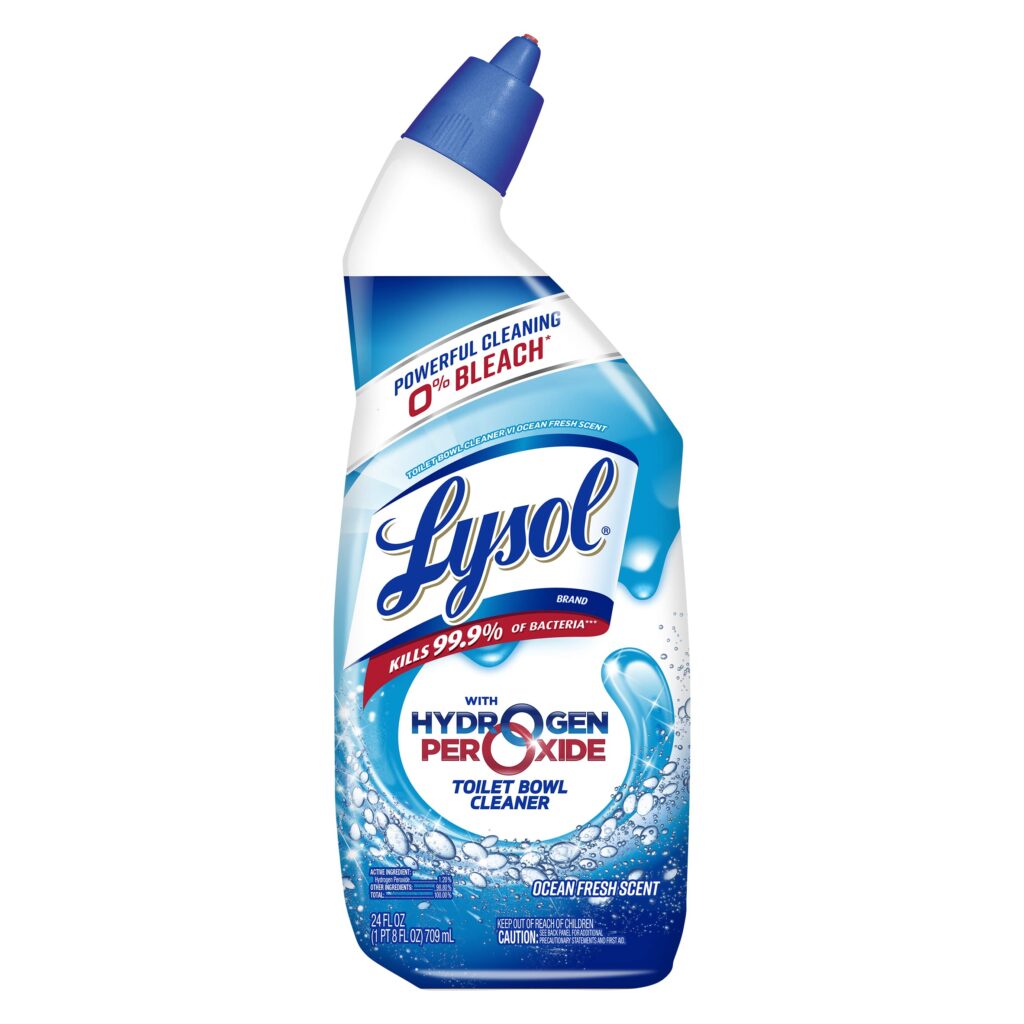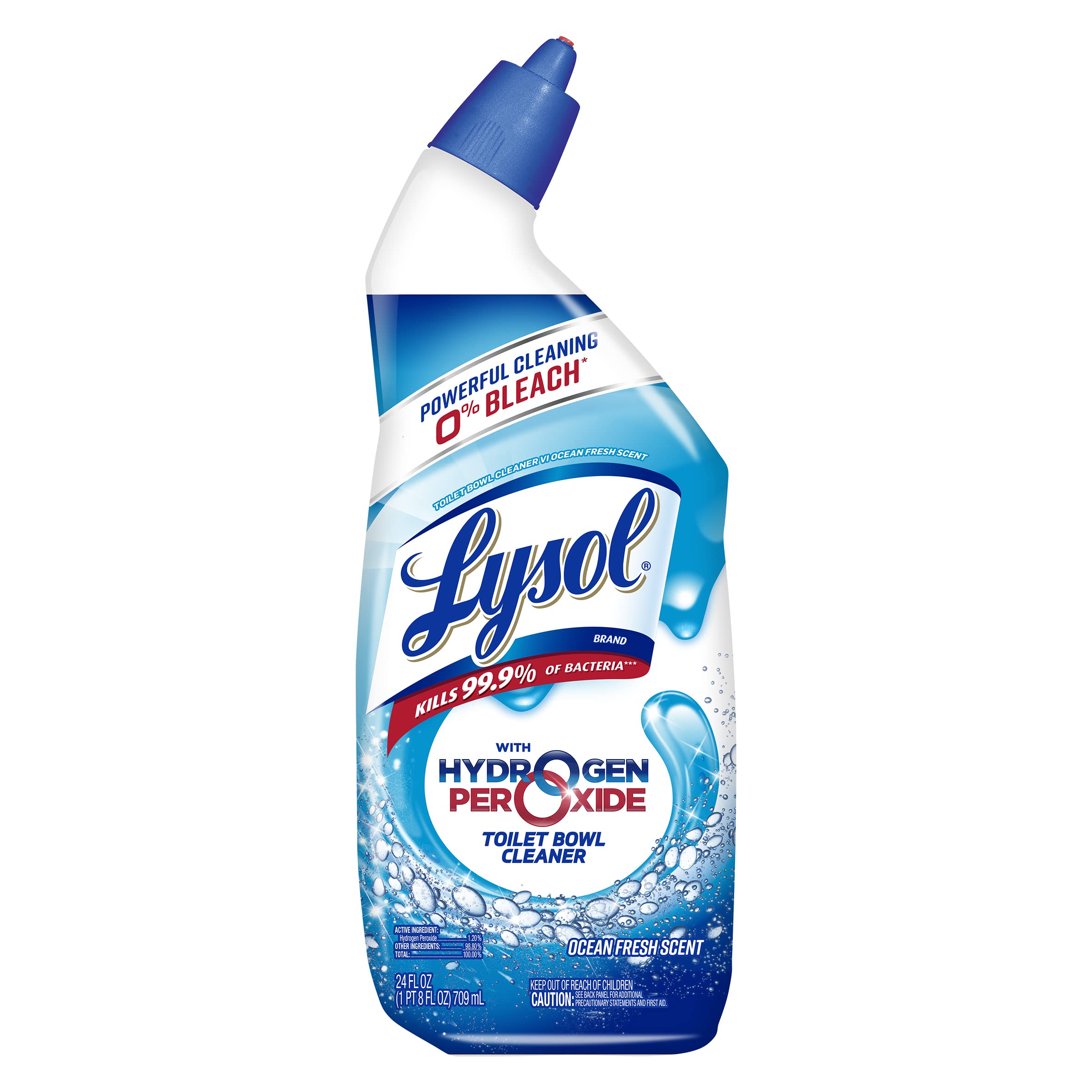Lysol Toilet Bowl Cleaner: Is It Safe for Septic Tanks? Exploring Eco-Friendly Options is an insightful article that takes a closer look at the popular Lysol Toilet Bowl Cleaner and its compatibility with septic tanks. With a friendly and informative tone, this article provides valuable information on whether this widely-used household product is safe for septic systems, as well as alternative eco-friendly options for those seeking environmentally conscious alternatives. Whether you’re a homeowner with a septic tank or simply curious about eco-friendly cleaning products, this article offers a comprehensive exploration of the topic.
Understanding Septic Tanks
How septic tanks work
Septic tanks are an essential component of the wastewater treatment system for homes and buildings that are not connected to a municipal sewer line. These underground tanks are responsible for treating and storing wastewater from toilets, showers, sinks, and other household drains.
The process starts with the wastewater flowing into the septic tank, where solid waste settles at the bottom, forming a layer of sludge. Bacteria present in the tank help break down organic matter, converting it into liquid and gases. The liquid portion, known as effluent, rises to the top and eventually flows out of the tank into the drain field, where it is further treated and filtered through the soil.
The importance of maintaining a healthy septic system
Maintaining a healthy septic system is crucial for the overall functionality and longevity of your wastewater treatment system. Neglecting regular maintenance can lead to costly repairs, environmental pollution, and health hazards. A malfunctioning septic tank can contaminate groundwater, cause foul odors, and even lead to the backing up of sewage into your home.
By implementing proper maintenance practices, you can prevent these issues and prolong the lifespan of your septic system. Regular pumping of the tank, conserving water, and using septic-friendly products are all essential steps in ensuring the health of your septic system.
Potential dangers to septic tanks
Several factors can pose a threat to the proper functioning of septic tanks. Some common dangers include:
-
Excessive water usage: When too much water enters the septic tank, it can overload the system and hinder the bacterial breakdown of waste. This can lead to the accumulation of sludge and clogging of drain pipes.
-
Flushing non-biodegradable items: Items like sanitary pads, cigarette butts, paper towels, and baby wipes should never be flushed down the toilet. These items can clog the pipes and interfere with the natural breakdown process in the septic tank.
-
Chemical cleaners: Harsh chemical cleaners, such as those used in toilets, can disrupt the balance of bacteria in the septic tank. They can kill off the beneficial bacteria responsible for breaking down waste, leading to an ineffective treatment process.
Introduction to Lysol Toilet Bowl Cleaner
Overview of Lysol Toilet Bowl Cleaner
Lysol Toilet Bowl Cleaner is a popular household cleaning product specifically designed for cleaning and disinfecting toilets. Lysol has been a trusted brand for many years, offering a wide range of cleaning solutions for various purposes. Their toilet bowl cleaner is formulated to remove tough stains, limescale, and bacteria, leaving the toilet clean and fresh.
Ingredients in Lysol Toilet Bowl Cleaner
The ingredients in Lysol Toilet Bowl Cleaner may vary slightly depending on the specific product variant. However, most Lysol toilet bowl cleaners contain a combination of active ingredients, such as hydrochloric acid or citric acid, and other cleaning agents, fragrances, colorants, and surfactants.
Effectiveness of Lysol Toilet Bowl Cleaner
Lysol Toilet Bowl Cleaner is known for its effectiveness in removing stains and killing bacteria. The active ingredients, particularly hydrochloric acid, help break down tough stains and mineral deposits, making it easier to clean the toilet bowl. The product’s disinfecting properties also contribute to a cleaner and more hygienic toilet.
However, it is important to note that the effectiveness of the cleaner should not be the only factor considered when choosing a toilet bowl cleaner, especially if you have a septic tank. The impact of the ingredients on the septic system’s health and functionality should also be taken into account.
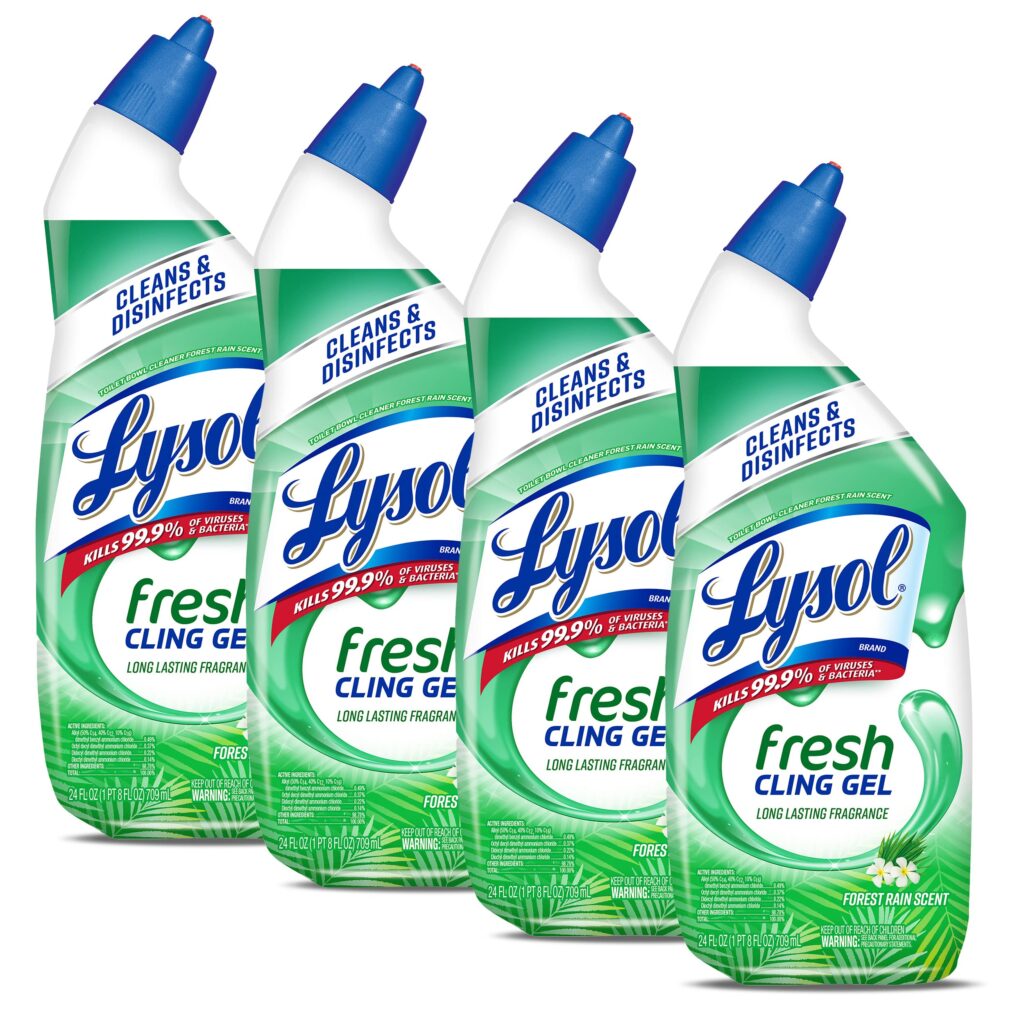
Impact of Chemical Cleaners on Septic Tanks
Common ingredients in chemical toilet bowl cleaners
Most chemical toilet bowl cleaners contain ingredients such as bleach, ammonia, hydrochloric acid, or other strong acids. These chemicals are effective in removing stains and disinfecting the toilet bowl, but they can also have adverse effects on septic tanks.
How chemicals can affect septic tanks
The use of chemical cleaners in toilets can disrupt the delicate balance of bacteria in septic tanks. These cleaners often contain harsh ingredients that kill off the beneficial bacteria responsible for breaking down waste in the tank. Without these bacteria, the waste may not be effectively treated, leading to the accumulation of sludge and other issues in the septic system.
Negative consequences of using chemical cleaners
Using chemical cleaners in toilets can have several negative consequences for septic tanks:
-
Disruption of bacterial balance: The harsh chemicals in chemical cleaners can kill off the essential bacteria in septic tanks, disrupting the natural breakdown process. This can result in a less efficient treatment of waste and a higher risk of clogs and backups.
-
Increased sludge buildup: The reduced effectiveness of waste breakdown can lead to the accumulation of sludge in the septic tank. This sludge can clog pipes, interfere with drainage, and require more frequent pumping of the tank.
-
Environmental impact: Chemical cleaners often contain ingredients that can be harmful to the environment if they enter water bodies or groundwater. These chemicals can contribute to water pollution and harm aquatic ecosystems.
Lysol Toilet Bowl Cleaner and Septic Tanks
Specific considerations for Lysol Toilet Bowl Cleaner
When using Lysol Toilet Bowl Cleaner with a septic tank, it is important to consider the ingredients and their potential impact on the septic system. Lysol’s toilet bowl cleaners contain hydrochloric acid, which can be harmful to the beneficial bacteria in septic tanks.
Claims made by Lysol regarding septic tank safety
Lysol claims that their toilet bowl cleaner is safe for septic tanks when used as directed. They emphasize the importance of following the usage instructions on the product label, which typically include not using excessive amounts of the cleaner and avoiding direct contact with the septic tank.
Expert opinions on the compatibility of Lysol with septic tanks
While Lysol claims their toilet bowl cleaner is safe for septic tanks, it is always wise to consider the opinions of experts in the field. Some experts suggest that even though Lysol may not cause immediate harm to septic systems when used moderately, the long-term effects of regular use can still be detrimental to the bacteria population in the tank.
Experts generally recommend using septic-friendly alternatives to avoid any potential harm to septic tanks, especially if they are already experiencing issues or if you want to prioritize the long-term health of your septic system.
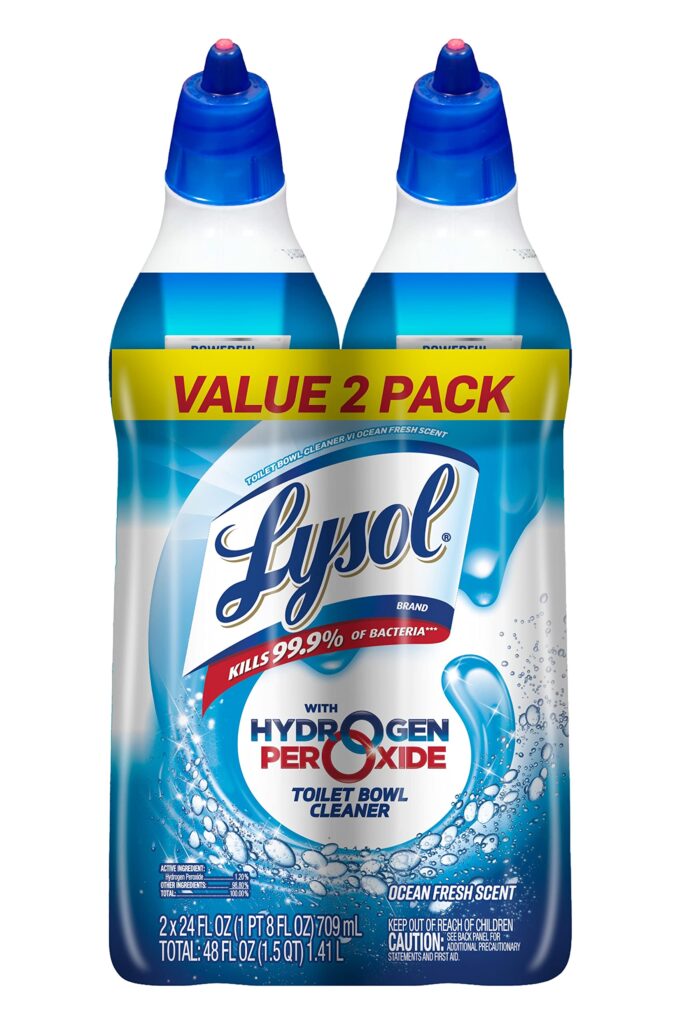
Eco-Friendly Alternatives to Lysol Toilet Bowl Cleaner
Benefits of using eco-friendly options
Using eco-friendly alternatives to chemical cleaners offers several advantages:
-
Reduced environmental impact: Eco-friendly cleaners are typically made from natural and biodegradable ingredients that are less harmful to the environment. They break down more easily and do not contribute to water pollution.
-
Safer for septic systems: Eco-friendly cleaners are generally gentler on septic systems, as they do not contain harsh chemicals that can disrupt bacterial balance. This helps maintain a healthier and more efficient septic system.
-
Healthier living environment: Chemical cleaners can release harmful fumes that can irritate the respiratory system and cause allergies or other health issues. Eco-friendly alternatives are generally safer to use, creating a healthier living environment.
Biodegradable toilet bowl cleaners
Many eco-friendly toilet bowl cleaners are biodegradable, meaning they break down naturally without leaving harmful residues in the environment. These cleaners often utilize plant-based ingredients and natural acids to provide effective cleaning and disinfection without compromising the health of septic tanks.
DIY natural alternatives
If you prefer a more hands-on approach, you can also consider making your own natural toilet bowl cleaner using simple household ingredients. Common ingredients like vinegar, baking soda, and essential oils can be combined to create an effective and eco-friendly cleaner.
Natural Cleaning Ingredients for Septic Tanks
Vinegar as a septic-safe cleaning agent
Vinegar is a versatile and effective natural cleaning agent that is safe for septic tanks. It can be used to clean and disinfect toilets by pouring it directly into the bowl and scrubbing with a toilet brush. The acidic nature of vinegar helps remove stains and kill bacteria, making it an excellent alternative to chemical toilet bowl cleaners.
Baking soda for effectively cleaning toilets
Baking soda is another popular natural cleaning ingredient that is safe for septic tanks. It can be used to eliminate odors, remove stains, and sanitize the toilet bowl. Sprinkling baking soda into the bowl, letting it sit for a while, and then scrubbing with a toilet brush can effectively clean and deodorize the toilet.
Essential oils for added freshness
To enhance the cleaning experience and add a fresh fragrance to your toilet bowl, you can incorporate essential oils into your natural cleaning routine. Essential oils like tea tree oil, lavender oil, or peppermint oil have natural antibacterial properties and can leave your toilet smelling pleasant without the use of artificial fragrances.
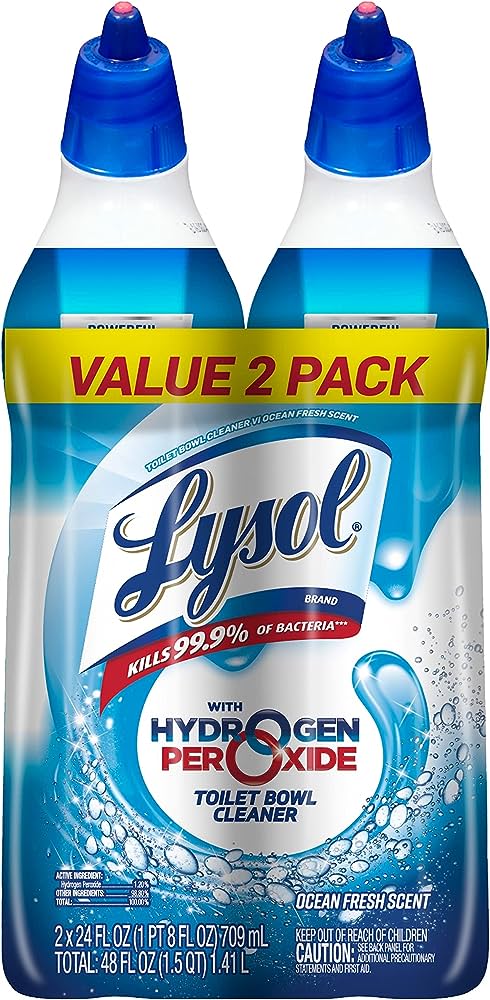
Tips for Maintaining a Healthy Septic System
Regular septic tank pumping
Regular septic tank pumping is a critical maintenance task that helps prevent solids from accumulating and clogging the drainage system. The frequency of pumping depends on factors such as the size of the tank, the number of occupants in the household, and the amount of wastewater generated. It is recommended to have your septic tank pumped every 3-5 years to maintain its efficiency.
Avoiding excessive water usage
Conserving water is key to maintaining a healthy septic system. Excessive water usage can overload the tank, leading to potential problems such as poor waste breakdown and backups. Simple water-saving practices like fixing leaks, installing low-flow fixtures, and spreading out water-intensive tasks can significantly reduce water consumption and ease the burden on your septic system.
Proper waste disposal practices
Proper waste disposal is essential to prevent issues in your septic system. Avoid flushing non-biodegradable items, such as diapers, sanitary products, paper towels, and chemicals down the toilet. These items can clog the pipes and disrupt the natural breakdown process in the septic tank. Be mindful of what goes down your drains to avoid any potential damage to your septic system.
Using septic-friendly cleaning products
Using septic-friendly cleaning products, like natural or biodegradable alternatives, is crucial for the health and longevity of your septic system. These products are designed to be gentle on septic tanks, ensuring the effective treatment of waste and the preservation of the bacterial balance. By switching to septic-friendly cleaning products, you can minimize the risk of clogs and backups while minimizing your environmental footprint.
Common Misconceptions About Septic Tanks
Septic tanks are self-cleaning
One common misconception about septic tanks is that they are self-cleaning and require no maintenance. While it is true that bacteria in septic tanks naturally break down waste, regular maintenance tasks like pumping, proper waste disposal, and the use of septic-friendly products are necessary to keep the system functioning efficiently.
Septic tanks can handle anything
Another common misconception is that septic tanks can handle all types of waste. Septic tanks are designed to treat organic waste, but they are not able to break down non-biodegradable items. Flushing items like plastic, sanitary products, and chemicals can lead to clogs and damage to the septic system.
Septic tank additives are always beneficial
There are many septic tank additives available on the market that claim to improve the performance of septic systems. However, experts are divided on the efficacy of these additives. While some additives may provide temporary benefits, they are generally not necessary for a well-maintained septic system. Proper maintenance practices, such as regular pumping and the use of septic-friendly products, are typically sufficient to maintain a healthy septic system.
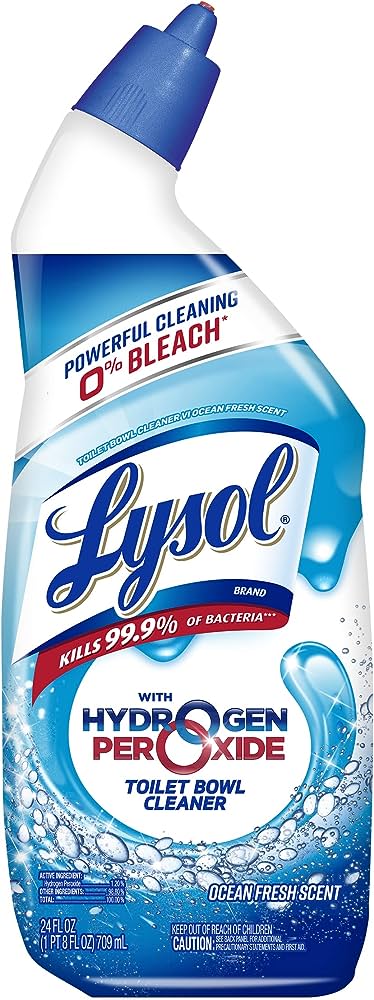
Additional Considerations for Eco-Friendly Choices
Packaging and waste
When considering eco-friendly choices, it is essential to pay attention to the packaging and waste associated with the product. Opting for products with minimal or recyclable packaging can help reduce the environmental impact. Additionally, exploring bulk options or refillable alternatives can further minimize waste generation.
Certifications and eco-labels
Choosing products with recognized certifications and eco-labels can provide assurance that the product meets specific environmental standards. Look for certifications such as EcoLogo, USDA Certified Biobased Product, or Green Seal on the packaging to ensure that the product has undergone rigorous testing and meets stringent criteria for eco-friendliness.
Companies committed to sustainability
Supporting companies that prioritize sustainability and environmental responsibility is another important consideration. Many brands are increasingly focusing on reducing their carbon footprint, using renewable resources, and implementing sustainable manufacturing practices. By purchasing products from these companies, you can contribute to a greener and more sustainable future.
Conclusion
When it comes to maintaining a healthy septic system, it is essential to consider the potential impact of cleaning products on the system’s functionality. While Lysol Toilet Bowl Cleaner claims to be safe for septic tanks, the use of chemical cleaners in toilets can have adverse effects on septic tanks, including disrupting the bacterial balance and increasing sludge buildup. Opting for eco-friendly alternatives, such as biodegradable cleaners or DIY natural options, can provide effective cleaning without compromising the health of septic systems. Additionally, adopting proper maintenance practices, conserving water, and using septic-friendly products are vital for maximizing the lifespan and efficiency of your septic system. By making informed choices and prioritizing the well-being of your septic system and the environment, you can contribute to a more sustainable and eco-friendly lifestyle.
